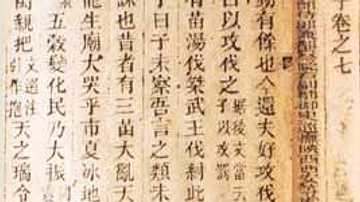The philosophers of ancient China developed diverse systems of thought, often in conflict with each other, all aiming to provide people with the means to live in harmony with themselves and others. Each philosopher understood his own teachings as the surest path toward a peaceful existence, even those who advocated war, pursuit of self-interest, or suppression of freedoms.
Han Feizi (l. c. 280-233 BCE), for example, established the philosophy of Legalism which sought to control people’s self-interest through legislation, while Yang Zhu (l. 440-360 BCE) and Teng Shih (l. c. 500 BCE) advocated for pursuing one’s personal passions freely, and Sun-Tzu (l. c. 500 BCE) famously claimed victory in war as the path to peace.
This collection presents eight Chinese philosophers, a small sampling of many, and the systems they created which continue to influence people’s personal and communal understanding today. Also included are Wonhyo (l. 617-686 CE) and Dogen (l. 1200-1253 CE). Although Wonhyo was a Korean Buddhist philosopher and Dogen a Japanese Confucian, both contributed to the later development of Chinese philosophical thought. Buddhism, considered one of the "three pillars" of Chinese philosophy and culture (along with Confucianism and Taoism) is addressed in another collection.









